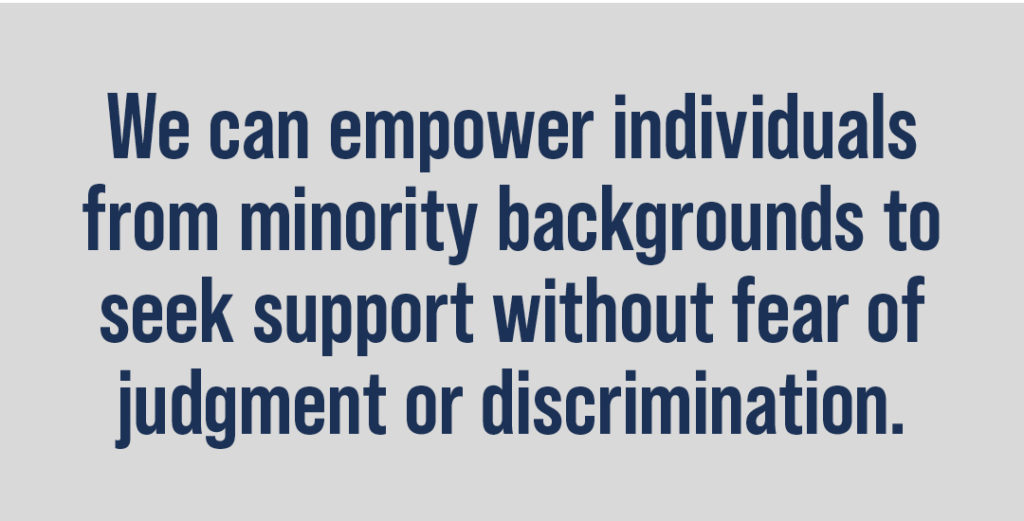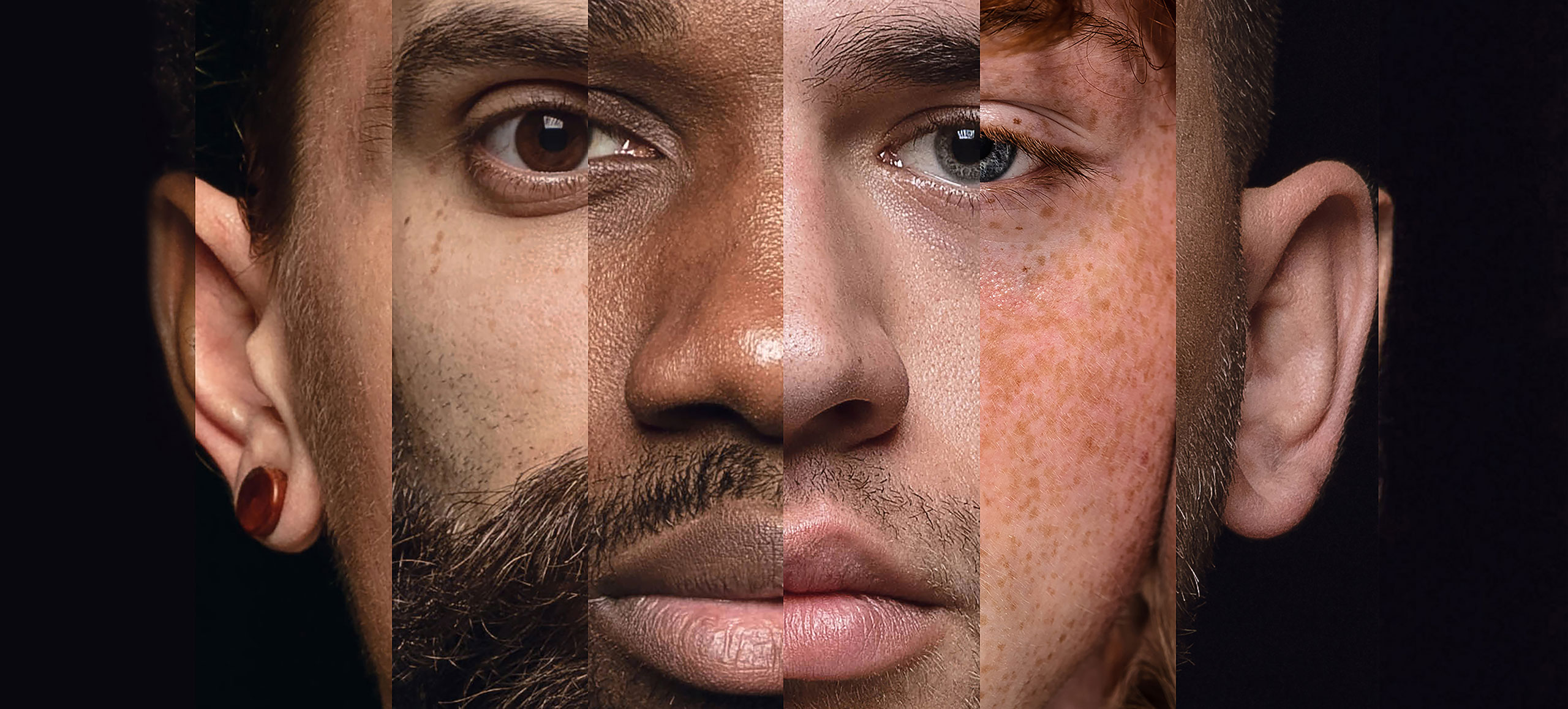Addressing Disparities:
Bridging the Gap in Minority Mental Healthcare
By Bizzell Editorial Staff
In our interconnected world, it is vital to recognize and address the mental health challenges faced by minority communities. In 2020, suicide was the third leading cause of death for African Americans aged 15 to 24 [1]CDC. National Center for Injury Prevention and Control. Web-based Injury Statistics Query and Reporting System (WISQARS). [Accessed 11/21/2022]. http://www.cdc.gov/injury/wisqars/index.html. Minority mental health encompasses the mental well-being of individuals from marginalized racial, ethnic, and cultural backgrounds. Despite significant progress in mental health advocacy, there is a pressing need to amplify the importance of minority mental health and promote inclusive and equitable mental health care for all.
National Minority Mental Health Awareness Month, observed in July, spotlights the significance of prioritizing the mental health of minorities and the benefits it brings to individuals, communities, and society. One of the primary reasons for prioritizing minority mental health is to challenge the persisting stigma surrounding mental illness within historically underserved minority communities. Stigma often prevents individuals from seeking help and exacerbates the negative impact of mental health issues.

The U.S. Department of Health and Human Services, Office of Minority Health’s (OMH) mission is to enhance the well-being of racial and ethnic minority communities by formulating health policies and initiatives to eradicate healthcare disparities. OMH offers numerous resources for those struggling with mental health, substance abuse, and serious mental illnesses. The National Institute of Mental Health also provides resources such as:
- A New Look at Racial/Ethnic Differences in Mental Health Service Use Among Adults [2]National Institute of Mental Health. (2015, April 23). A New Look at Racial/Ethnic Differences in Mental Health Service Use Among Adults. https://www.nimh.nih.gov/archive/news/2015/a-new-look-at-racial-ethnic-differences-in-mental-health-service-use-among-adults
- Structural Racism and Discrimination: Impact on Minority Health and Health Disparities [3]National Institute on Minority Health and Health Disparities. (2021, December 21). Structural Racism and Discrimination: Impact on Minority Health and Health Disparities. https://www.nimhd.nih.gov/about/publications/structural-racism-and-discrimination-impact-on-minority-health-and-health-disparities.html
By promoting awareness and open dialogue, we can empower individuals from minority backgrounds to seek support without fear of judgment or discrimination. Prioritizing minority mental health fosters inclusivity and validates these communities’ unique experiences and perspectives. Together, let’s break the stigma and strive for a future where minority mental health is a top priority, where people of color are empowered with more resources, and we acknowledge mental health disparities.
References
[1] CDC. National Center for Injury Prevention and Control. Web-based Injury Statistics Query and Reporting System (WISQARS). [Accessed 11/21/2022]. http://www.cdc.gov/injury/wisqars/index.html
[2] National Institute of Mental Health. (2015, April 23). A New Look at Racial/Ethnic Differences in Mental Health Service Use Among Adults. https://www.nimh.nih.gov/archive/news/2015/a-new-look-at-racial-ethnic-differences-in-mental-health-service-use-among-adults
[3] National Institute on Minority Health and Health Disparities. (2021, December 21). Structural Racism and Discrimination: Impact on Minority Health and Health Disparities. https://www.nimhd.nih.gov/about/publications/structural-racism-and-discrimination-impact-on-minority-health-and-health-disparities.html

